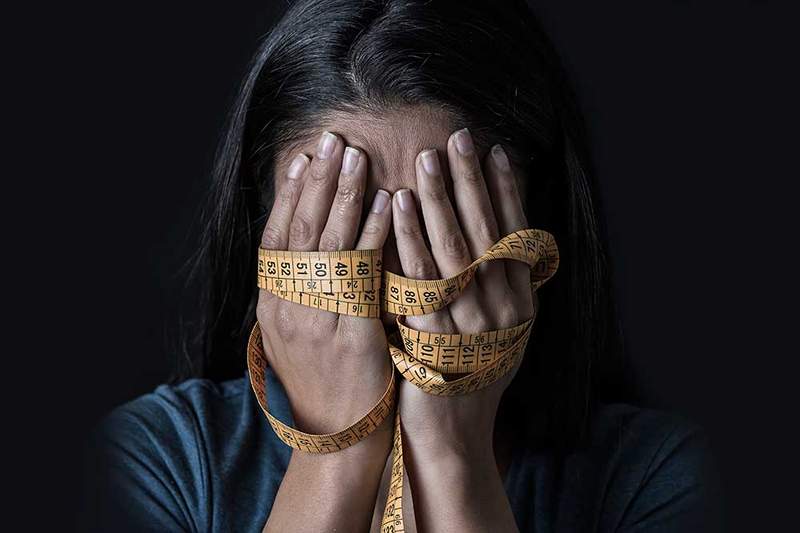Gordophobia, excessive rejection of overweight

- 1786
- 393
- Hugh Greenholt
Gordophobia It is the discrimination suffered by people with excess weight by society.
The same word indicates that it is a phobia towards fat people, or overweight; However, the emotional sequelae of those who live this type of rejection they are huge.
People, victims of fatophobia, feel humiliated, mistreated, invisible and even constantly ridiculed, only by that physical characteristic, called Gordura.
Gordophobia
What really is fat or where it arises? The truth is that most constructs are social.
It is the same society that, with their schemes and beauty ideal, submits people with excess weight to public rejection.
Lately, Trends in magazines, social networks and other technological facilities have allowed bodies with reduced measures to be more visible and that the others are looked from repulsion, in those cases in which they are not ignored.
People who are victims of the Gordophobia feel that they are humiliated and live under permanent pain, which affects other spheres of their life, since, in some cases, these people tend to develop even inhibition or shyness for fear of being rejected.
Likewise, those who are the subject of the fatophobia feel the contempt that others throw towards them and this, sooner or later, leads them to a feeling of guilt, in which they feel responsible for something that may not be so easy to change.
However, this is now being approached from a problem that is not personal, but public, and even political, which has given way to the emergence of movements such as that of Stop Gordophobia, With which It is promoted that each person love himself and respects his body, regardless of the look or expression of the other.
This phobia towards fatness, or fatty, can be perceived in many scenarios, such as in the street, in the jobs, and even at the clinical level when the person with excess weight goes to consultation for a reason and The specialist always ends up saying that "it must reduce sizes".
In the movies, the characters with Gordura, generally, are the ones who play the role of clumsy, ridiculous or are the most funny, but, almost never, they play a leading role.
Similarly, the media fill the tips networks to combat obesity, as if it were a simple matter.
In schools and institutions, who have fatness, they are also victims of harassment or bullying.
This type of phobia is spreading to many areas; Well, in the restaurants there are also those who look with the people who eat large dishes, and not only women can suffer it, but also Stigma can also be lived by men, especially in football fields or other places in which sizes are more important than skills.
Another approach to fat
It is necessary to recognize that those who suffer from fat such. But, there are those who only want or demand to be respected, regardless of whether they have increased or reduced a size.
From nutrition and traditional medicine, obesity is considered a health risk factor. At the same time, some psychologists address this matter as an eating disorder.
But, it is worth asking if it is not a social aspect, in which a pattern of measures is established to be considered "beautiful or beautiful", because, although it is true that it is repeated: "Being excess weight is harmful for health ”, it is also true that those who are fat suffer from discrimination and harassment, which is not healthy, especially at the psychological level.
So, more than a concern for the health issue, there is a hatred that is directed against people of large sizes.
In this sense, the author Nina Navajas, in her work on Gordophobia, establishes that both governments and public health agencies are those who have cataloged fatness as a pathology, or "global epidemic", considering all fat people like sick, or prone to develop diseases.
So that, treatments aimed at sizes have been based on hypocaloric dietary plans or physical activity, because they have considered that excess calories and sedentary style are the causal factors of obesity.
Therefore, today there are areas such as psychonutrition, or integrative nutrition, which studies the human being in all its spheres, both physical and psychological.
It is important to keep in mind that, although obesity becomes a health problem, and that it could be suggested to prevent, this should not be a way of justifying stigmatization, or the one who judges who has a body with large sizes, Well, he would be inducing eating problems, self -esteem or guilt.
Stigma on mental illnesses: a step in decline towards emotional well -being. 9 keys
Bibliography:
- -Araújo, l. S., from Lima Coutinho, M. D. P., Alberto, m. D. F. P., Santos, a. M. D., & de Lima Pinto, to. V. (2018). Based discriminating no weight: Representções Sociais de Internetautas over a fatophobia. PSYCHOLOGY EM ESTUDO, 23.
- -Gómez-Pérez, Daniela, S. Ortiz, Manuel, & L. Saiz, José. (2017). Obesity stigma, its impact on victims and health teams: a literature review. Chilean Medical Magazine, 145 (9), 1160-1164. https: // www.Scielo.CL/SCIELO.PHP?script = sci_arttext & pid = S0034-98872017000901160 & lng = in & nrm = iso & tlng = in
- -Navajas-Pretgás, Nina. (2017). Gordophobia is a problem of social work. Azarbe, 2017, No 6, P. 37-46 ... Azarbe. 2017.
- -Navajas-Pretgás, Nina. (2017). The weight of the Gordophobia: a critical analysis of discourse around symbolic violence produced by the 'healthy grammar'.
- -Suárez García, C. (2017). Gordophobia: a transit between the disease and the cost of the female body.

